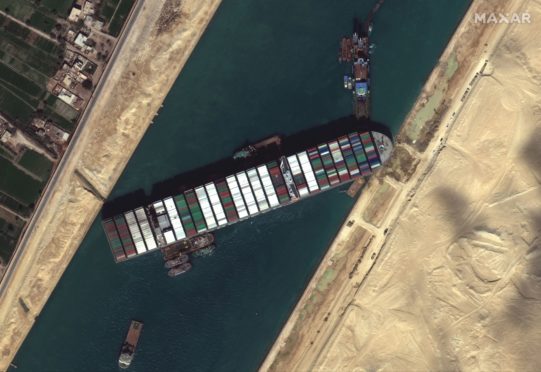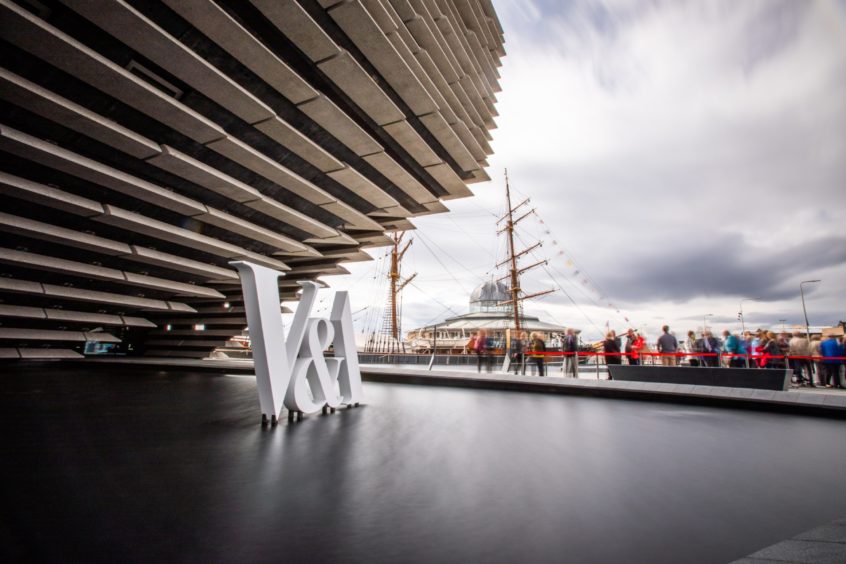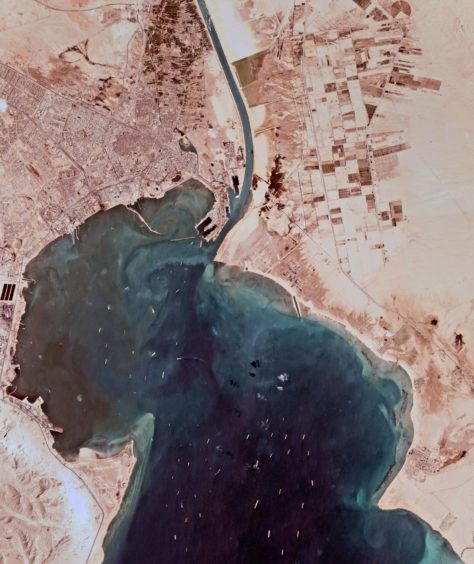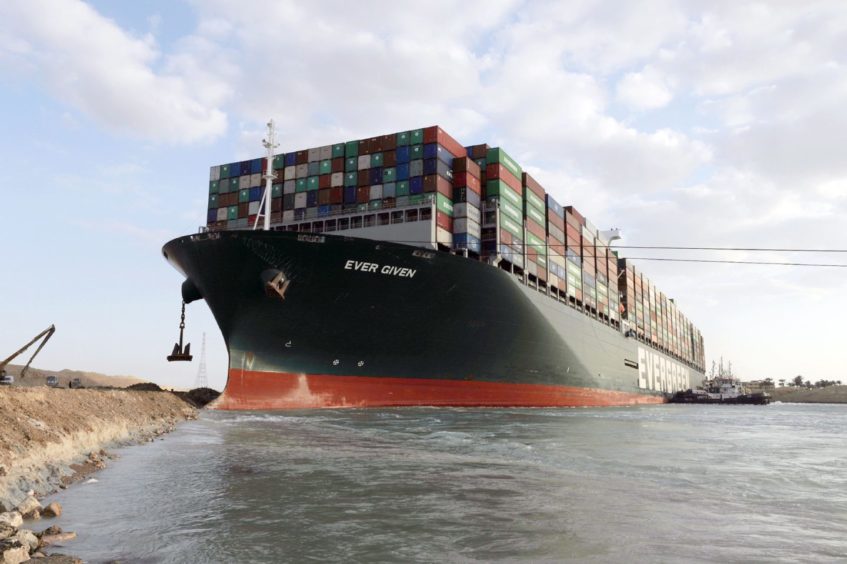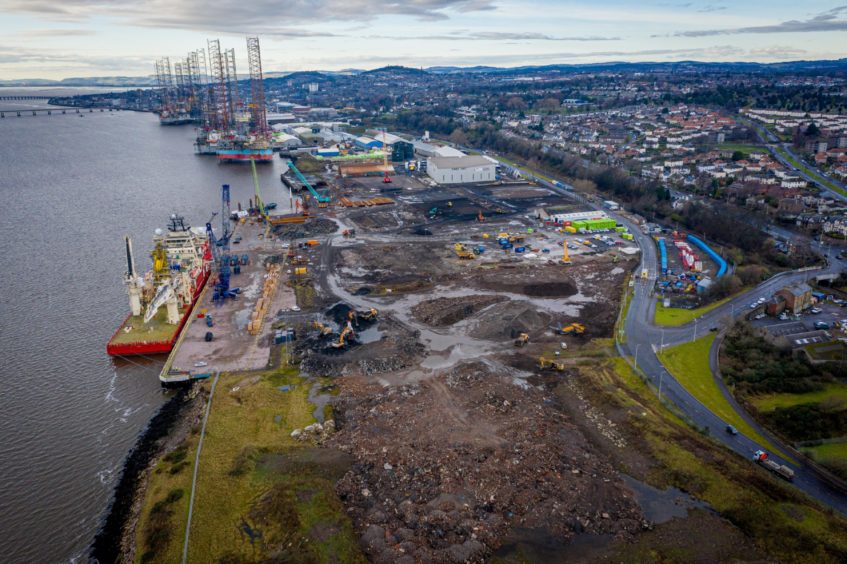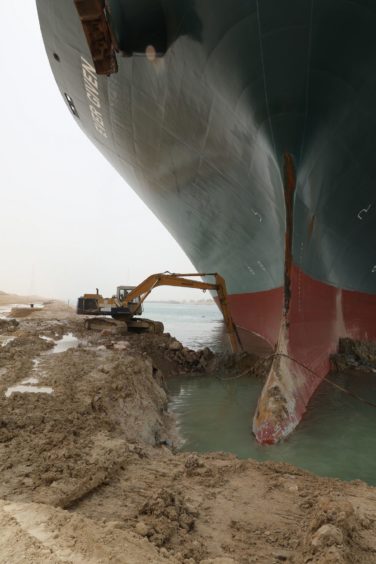It’s the big stuck boat that launched a thousand memes but the blockage of the Suez Canal by the Ever Given container ship might be about to hit home for Scottish consumers, says Tim Morris, of the UK Major Ports Group.
There are nearly 12,500 nautical miles between Shanghai, the Ever Given’s starting port, and Dundee via the Suez Canal.
The seething mass of hundreds of cranes and millions of shipping containers on the east coast of China is a bit different from the magnificent V&A that graces the shoreline of the Tay.
A world apart you might say.
And yet there’s a chance that if you tapped ‘buy now’ on your phone or clicked ‘take me to check out’ with your computer mouse recently the thing you’ve bought will be on the Ever Given or one of the other nearly 400 ships caught up in the congestion caused by the blockage of the Suez Canal.
Because behind each tap, click and item on a shop shelf sits a huge and often global machine of ships, ports, warehouses and hardworking people connecting us with the farms, factories and studios where so many of the goods we rely on each day are produced.
As an island nation the UK is dependent of ships and ports for the movement of 95% of the goods that arrive or leave.
The device you’re using to read this article almost certainly arrived via a shipping container, probably from Asia and probably via the Suez canal. But that figure also includes the fundamentals of life such as the import of half of the UK’s food and feed needs.
It’s exports too. Large quantities of Scotch whisky, to give one example, travel in containers heading the other way to Asia as one of Britain’s great global trade success stories.
None of this should be new or a surprise to a place like Dundee, with its rich heritage of global trade and its centuries old history as a gateway with the world via the sea.
It still remains an important port city but in a different sense. Like Dundee’s transition from leader in jute to computer games its port is pivoting from a simple gateway for the movement of goods by investing heavily in the construction of one of the leading locations servicing the green transition we all want to see.
There’s been no real direct impact from the Ever Given’s unfortunate mis-manoeuvre and resulting shipping backlog in the Suez Canal on the UK – yet – but following Easter we can expect a period of unpredictability and disruption to supply chains as ships arrive well off timetable.
You can be assured that ports and other logistics companies will be working hard to make sure we end consumers notice as little of this as possible, but it presents a real challenge for companies that have already been coping with big rises in demand for globally shipped goods over the last six months.
More fundamentally, I’ve been asked if we in the UK have become over reliant on global trade and the behemoths like the Ever Given that make it happen. It’s a good question.
A combination of Covid-19, Brexit and now this are likely to prompt some serious thinking about the resilience of global supply chains – although it’s more likely to centre around the way these chains are designed and managed than an expectation that we’ll stop buying things made in Asia.
The choice and cost advantages benefit all of us. Their devices for our whisky is just one example. And there’s strong evidence that global trade makes everyone better off, including those in the poorest parts of the world.
Dundee and Shanghai may be worlds apart. But they are interconnected by the Ever Given and its peers. And that’s worth thinking about the next time your finger hovers over the buy button.
Tim Morris is CEO of the UK Major Ports Group and joined it from the communications consultancy Hanover, where he was the director responsible for the energy and infrastructure practice.
